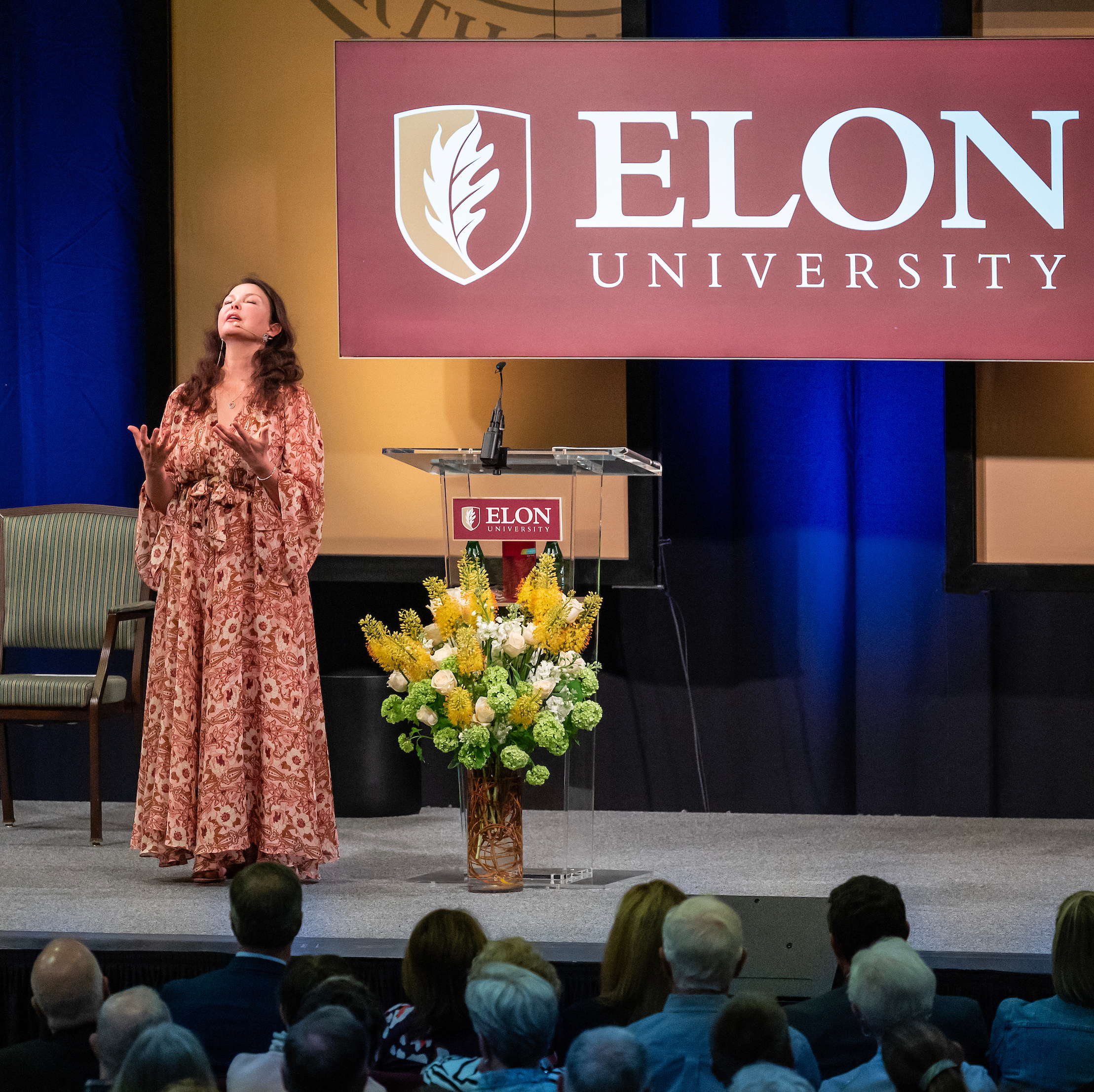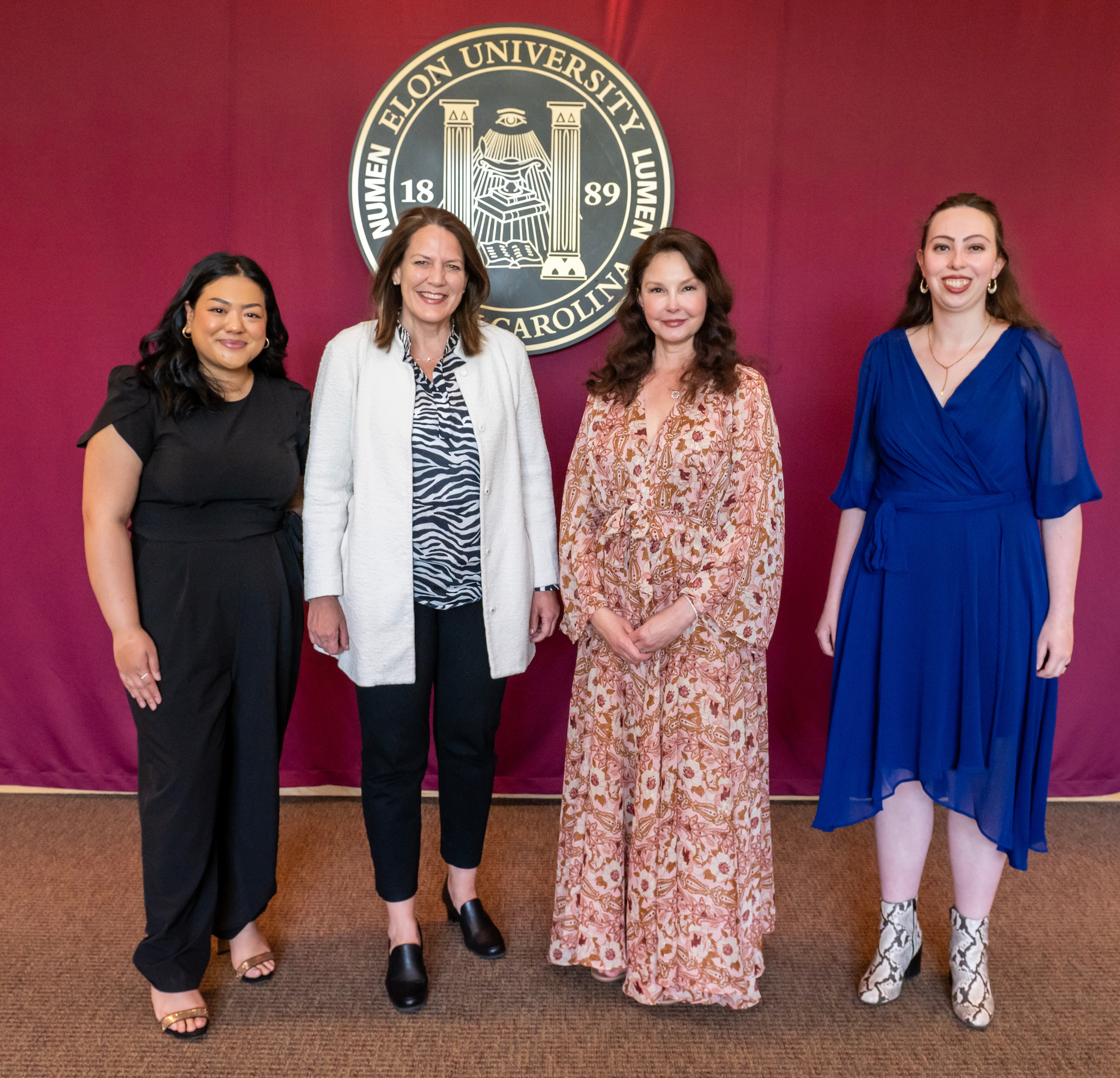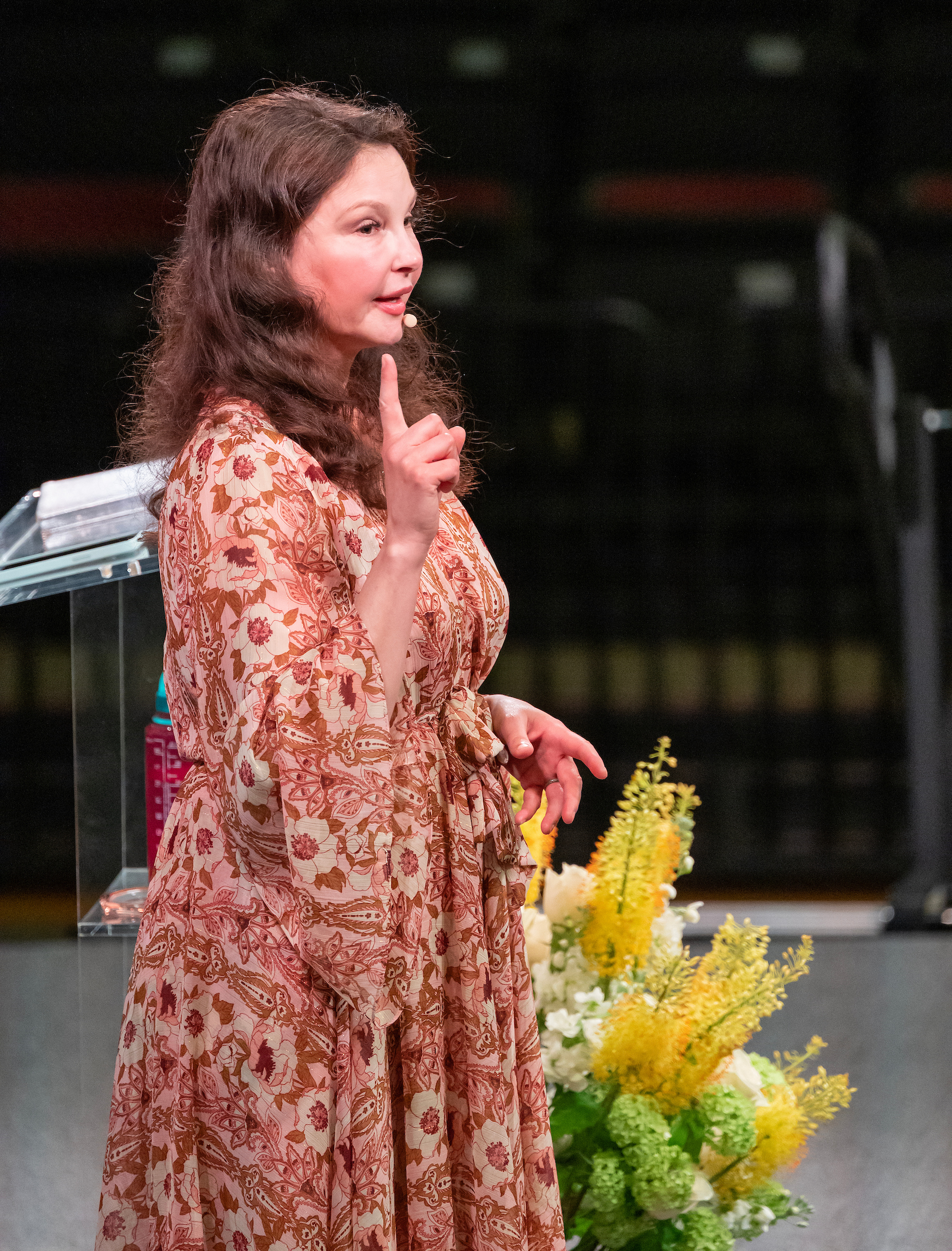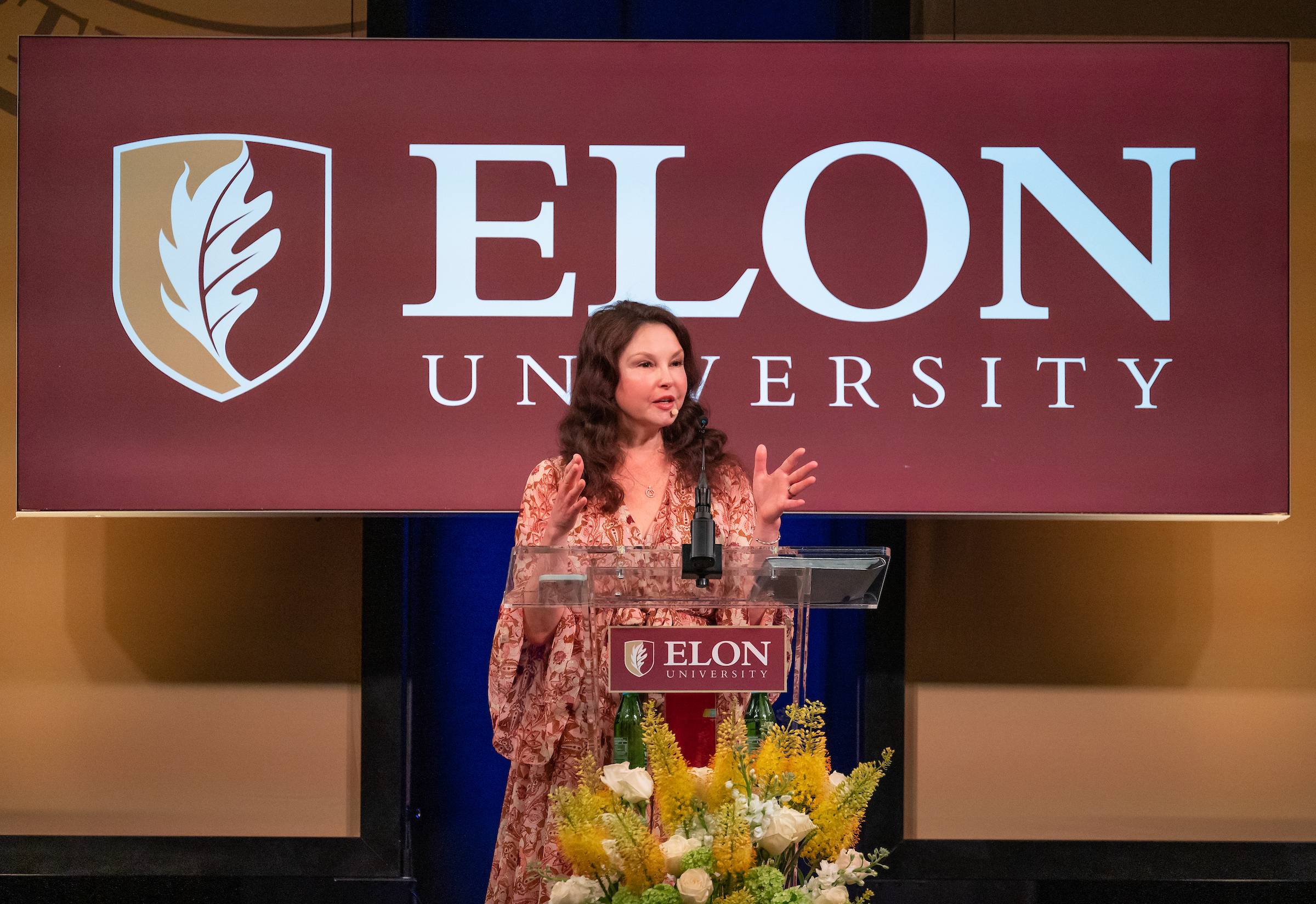Judd spoke to hundreds in attendance in Alumni Gym during the April 13 convocation.
As a junior in high school, Ashley Judd discovered the power of an individual. An award-winning actress, activist and humanitarian, Judd’s journey began with the complicated family web that she was born in — a family that suffered from sexual trauma, substance abuse and untreated mental illness.
It’s a journey that has left Judd scarred by childhood trauma, frustrated by entrenched societal systems that punish women and minorities and coping with how to heal herself so that she can help others. It’s also a journey that has seen Judd celebrated for her success on the silver screen and applauded for her humanitarian efforts and outspoken activism.
And on Thursday night, Judd walked those gathered in Alumni Gym through the highs and lows of that journey during Spring Convocation. Her focus beyond sharing poignant and painful moments from her own life was to deliver a message of how people can make a greater impact by caring for their own mental and physical health, just like one woman did when Judd was 14.

It was a time when the music careers of her mother, Naomi, and sister, Wynonna, had begun to gain traction. Judd found herself a teenager surviving alone, away from any support system and, to this day, she’s unsure how she found her next meal or made any money.
The next year, Judd moved to live with her father in Lexington, Kentucky. Sitting at a literal crossroads, “between Tates Creek Road and New Circle Road,” Judd remembered having doubts about how well the situation would go. Her intuition proved correct when after six weeks her father left for Florida, leaving behind less than $100 in an envelope for the young Judd.
One afternoon, Judd saw a woman sitting on her patio, and impressed by the large book she was reading, Judd decided to ask her if she could use her washer and dryer to clean her clothes. The woman, Maureen, allowed her to do laundry, and soon became a trusted adult in her life. What Judd soon found out was that Maureen was seven years sober at the time, and her sponsor had given her advice to love freely without expecting anything in return. It was Maureen’s grace that helped Judd through that period, and it was her act of showing up that helped Maureen just as much.
“To this day, she tells me I was a gift from God,” Judd told the audience.
The following year, Judd moved in with her grandmother and with some sense of stability in her life, she earned good enough grades to attend the University of Kentucky. Judd joined a sorority while in college, but soon found herself having to stand up against injustices, isolating herself from her sorority sisters.
A trustee of the school, former U.S. Sen. and Kentucky Gov. Happy Chandler, made racist remarks toward Black students and was allowed to remain a member of the board. As her sorority stood in line to have a book signed by Chandler, who was beloved by many on campus, Judd went to several Black organizations on campus and protested with them outside of the book signing.
Taking a stance for the right cause is something she urged everyone to do. “In a university setting like this,” Judd told those in attendance, “I challenge and encourage you to be bold, to be big and to take risks.”

Judd also spoke on the power of the collective individual through the work of the Me Too and Time’s Up movements which fights against sexual abuse and harassment. Judd was the first actress to publicly accuse Harvey Weinstein — who has been sentenced to prison for rape — of sexual misconduct. Judd was named one of the 2017 Women of the Year by TIME Magazine and the Me Too movement inspired countless women to speak out against past transgressions they’ve faced.
The work for this is not done, Judd said. The structures that support such abuse still thrive and to extinguish those systems, it’s going to take effort from everyone, Judd said.
“The entire ecosystem is complicit,” she said. “It’s not just about holding the perpetrators accountable. It’s about the bystanders. Everyone needs to participate in this healing.”
Judd credits her sister, Wynonna, for being the catalyst for her own journey of recovery from her personal trauma. After Wynonna received help at the Shades of Hope treatment center for her eating disorder, Judd was invited to the family week event. Reluctant at first on whether or not she’d attend, Judd was eventually convinced and by the end of the week, the program had done an intervention on her and invited her to stay for inpatient treatment for unresolved childhood grief and sexual trauma.

So burdened by the shame of her past, Judd couldn’t admit that she needed help. With her family’s support, she surrendered and slowly peeled away the many layers of her trauma.
She credits her spiritual and emotional healing as the reason for the repaired relationship with her parents. Her recovery also taught her how to love someone who is sick and how to detach, not being caught up in someone else’s disease.
The example Judd used in her address was that of her mother, who died by suicide in April 2022. Her mother had a long battle with untreated mental health issues and with time, Judd realized that she could not be a part of her mother’s journey. She could only reinforce her love for her and support her without her own self-worth being dependent on that.
“I could hold that complexity of feeling the trauma and the gift. And that’s something that I hope you here at Elon can cultivate — to tolerate ambiguity and to hold complexity in your life. Because this world of binaries and black and white isn’t a successful way to live. We have to be able to stand in these dualities,” Judd said.



